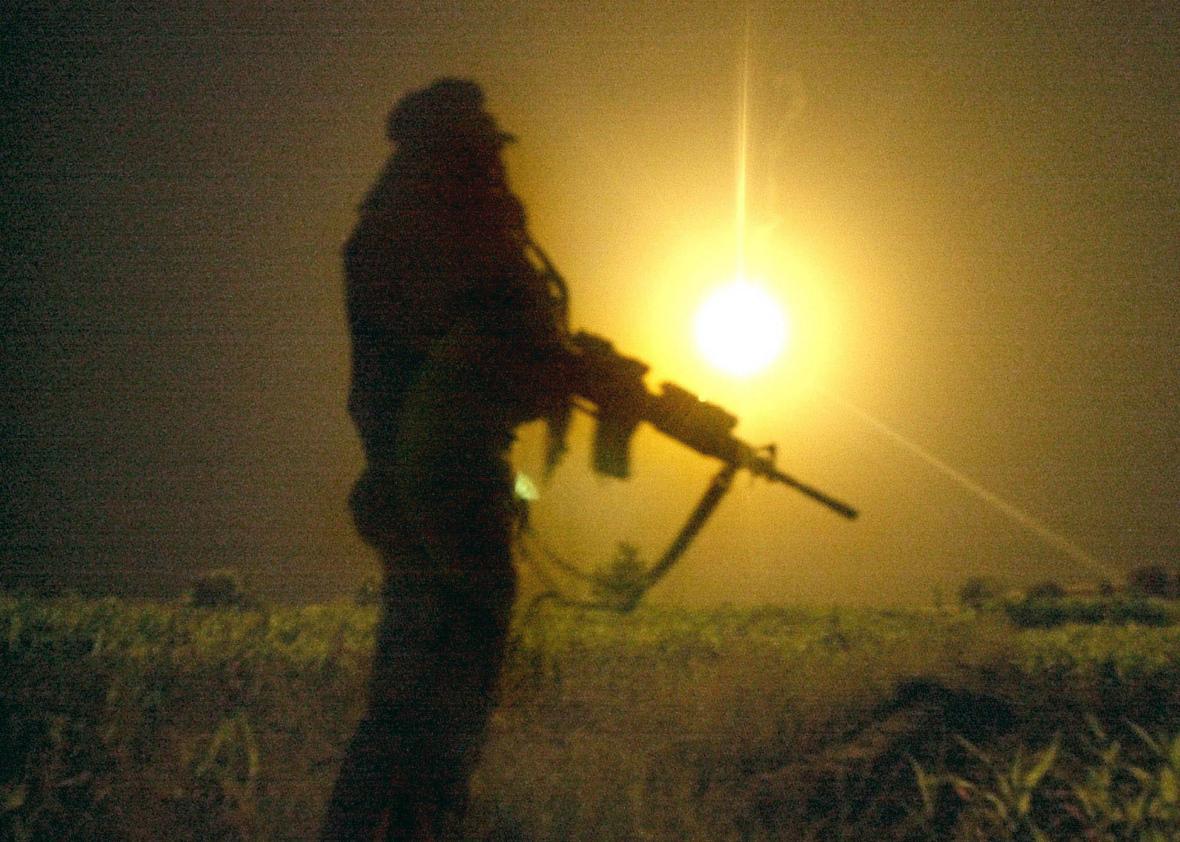We’re living in “the age of the commando,” wrote former Army Capt., Iraq veteran, and novelist Matt Gallagher in Sunday’s New York Times. Along with drones, the reliance of special operations forces—including Delta Force operators, Navy SEALs, Green Berets, and Army Rangers—has been one of the hallmarks of the Obama administration’s national security policy, though the commandos have gotten a lot less attention than the robots.
Gallagher notes the recent appointment of a special ops commander, Gen. Joseph Votel, to lead the U.S. Central Command, responsible for overseeing military operations in the Middle East and Central Asia. And he highlights the deployment of U.S. special ops forces to approximately 139 countries around the world. Most of those are training missions, but special ops forces have seen recent combat in Iraq, Syria, and Afghanistan, to a lesser extent in Yemen, Libya and Somalia, and most famously in Abbottabad, Pakistan.*
Gallagher has concerns about this approach. “Special Operations are not a panacea,” he writes. “Just as SWAT teams can’t fulfill their purpose without everyday beat cops on corners, operators can’t and don’t function in a vacuum.” Beyond questions about efficacy, though, this dependence on special forces is also rendering the political debate over the use of U.S. military force increasingly obsolete.
Barack Obama came into office promising to end the Bush administration’s unpopular wars in Iraq and Afghanistan, and technically speaking he has—though, as his critics often point out, he’s conducted combat operations in more countries around the world than his predecessor. But even as American troops have returned to Iraq to fight against ISIS, and even as the White House has elected to keep American forces in Afghanistan through the end of Obama’s presidency, the White House has maintained that U.S. troops are not involved in ground combat. It’s kept to this line, even when special operations troops have been killed in combat against ISIS.
The reliance on both airstrikes and targeted capture or kill raids by special operations forces has allowed the administration to maintain this line. The White House’ proposed authorization for military force against ISIS includes a prohibition against “enduring offensive ground combat operations.” While Republican critics have pilloried the president for this pre-emptive limit, as one former official joked, “The 10th Mountain Division could get through that loophole.”
Nevertheless, Obama sees the distinction as significant. “You know, when I said, ‘No boots on the ground,’ I think the American people understood generally that we’re not going to do an Iraq-style invasion of Iraq or Syria with battalions that are moving across the desert,” he said in December. Left unsaid here is whether anything short of battalions sweeping across the desert constitutes ground combat in Obama’s view. Modern technology and military tactics sure do give presidents these days an awful lot of leeway to send troops into battle without having to call it “boots on the ground.”
Meanwhile, in the GOP primary, the candidates have all criticized the president for putting unnecessary limits on the means he would use to fight ISIS. Marco Rubio and Jeb Bush in particular have gone after Obama’s reluctance to put “boots on the ground.” But with the exception of the recently departed Lindsey Graham, no candidate for president is explicitly calling for a deployment of regular ground troops in combat with ISIS anyway. It seems likely that the next president, whichever party he or she comes from, will continue the current reliance on special operations forces, the training and equipping of foreign allies, and airstrikes.
“Combat operations,” and “boots on the ground” are no longer particularly useful ideas given the way that America conducts war today. In the “age of the commando,” we need new language to talk about war.
*Correction, Feb. 2, 2016: This post originally misspelled the name of Abbottabad, the city in Pakistan.
